The Drowned Woman: An absolutely unputdownable mystery and suspense thriller (Jericho and Wright Thrillers Book 2) Read online
The Drowned Woman
An absolutely unputdownable mystery and suspense thriller
CJ Lyons
Books by CJ Lyons
Jericho and Wright Thrillers Series
The Next Widow
The Drowned Woman
Fatal Insomnia Medical Thrillers
Farewell to Dreams
A Raging Dawn
The Sleepless Stars
Lucy Guardino Thrillers
Snake Skin
Blood Stained
Kill Zone
After Shock
Hard Fall
Last Light
Devil Smoke
Open Grave
Gone Dark
Bitter Truth
Angels of Mercy Medical Suspense
Lifelines
Catalyst
Trauma
Isolation
AVAILABLE IN AUDIO
The Next Widow (Available in the UK and the US)
Contents
Prologue
Chapter 1
Chapter 2
Chapter 3
Chapter 4
Chapter 5
Chapter 6
Chapter 7
Chapter 8
Chapter 9
Chapter 10
Chapter 11
Chapter 12
Chapter 13
Chapter 14
Chapter 15
Chapter 16
Chapter 17
Chapter 18
Chapter 19
Chapter 20
Chapter 21
Chapter 22
Chapter 23
Chapter 24
Chapter 25
Chapter 26
Chapter 27
Chapter 28
Chapter 29
Chapter 30
Chapter 31
Chapter 32
Chapter 33
Chapter 34
Chapter 35
Chapter 36
Chapter 37
Chapter 38
Chapter 39
Chapter 40
Chapter 41
Chapter 42
Chapter 43
Chapter 44
Chapter 45
Chapter 46
Chapter 47
Chapter 48
Chapter 49
Chapter 50
Epilogue
Hear More from CJ
Books by CJ Lyons
A Letter from CJ
The Next Widow
Acknowledgments
“The best way to keep a prisoner from escaping is to make sure he never knows he’s in prison.”
Fyodor Dostoevsky
Prologue
17 years ago…
Flying. She was flying.
Wind sliced against her face. Time was fluid, slippery. Was it centuries, or seconds? She knew she was falling from the lurch in her stomach. She took a ragged breath, in and out, then a slam jolted through her, and her entire body propelled forward until the airbag blew and the seatbelt grabbed her, holding her in place with a bruising grasp.
Her eyes fluttered open as the first splash of frigid water crashed through the open window beside her. She shook her head, startled to be awake—to be alive. Her throat was raw, every breath an effort. Her head throbbed, ears shrieked, body bruised. Hands flailing, fighting…
More water, seeping up from below, streaming through the windows—the car, she was in her car. In the river—how? She blinked, tried to focus past the pain and the rushing noise that consumed her mind. Why?
He’d tried to kill her… Why?
She fumbled at her seatbelt. Jammed. She had a safety tool—where, where… She tried to open the center console, but her fingers were numb from the icy water, unable to obey the commands her brain screamed out as she fought to survive. The black water was already at her neck, the car sinking, the river consuming it with primal greed. Wind howled, water flooded in, the car groaning in protest, the wail of a dying beast.
Still, she fought, tilting her face to swallow a last lungful of air, pulling at the seatbelt that kept her prisoner, straining, tugging, trying, fighting… until finally, there was nothing to fight against. Nothing left to fight with.
Silence. A sweet release of darkness beckoned as the car settled into the cradle of the river’s muddy bottom. The only light a soft glow illuminating a man’s face.
Luka. She strained to call out to him, bubbles escaping her as her lungs emptied for the final time. Luka. Her arms stretched, bobbing in the current now that the car had surrendered to the river. She reached out, felt his hand grab hers, so strong, so warm, his touch bringing a rush of calm.
Luka. She sighed, her body collapsing. She had nothing left except one last thought. Why?
One
It was perfect weather for a funeral. But despite the gusting wind, chill rain, and the other-worldly fog rolling off the Susquehanna River, Luka Jericho was here to celebrate a life.
For seventeen years, every March 18th, no matter the weather, no matter his workload, in sickness or in health, Luka had made the pilgrimage back here, to the place where he’d lost everything.
After almost two decades, there was little left to mark where Cherise had driven off the road and plunged into the river. The scraggly bushes and saplings that had done nothing to slow her car on that chilly night so long ago were all now fully grown. If he’d driven here in summer, he’d be barely able to glimpse the river through their foliage. But Luka never came here in summer. He came only one day—this day—every year. To mark Cherise’s life and to try to understand her death.
That mystery had changed his life and driven him to forsake his college dreams, propelling him into a career in law enforcement. Now, as the detective sergeant in charge of Cambria City’s Violent Crimes Unit, Luka understood the logic behind his choices, the aftermath of trauma. After Cherise, after the gut-wrenching realization that he’d missed the signs, been oblivious to her pain, clueless… of course he’d been driven into a profession where he could help others find the answers they desperately searched for.
He sat in his pickup, watching the way the wind sliced through the early morning fog. Wet, thick spirals dancing across the river emerged on land as wisps that almost—but not quite—appeared human. They beckoned to him, inviting him into the river’s intoxicating, chill embrace. To join Cherise and follow her path into the dark and lonely depths.
On the seat beside him sat his usual offering: a large bouquet of irises, blindingly blue blossoms that, despite being dead and dying, appeared almost too alive and vibrant against the shades of March gray that saturated the landscape. Or maybe it was merely his colorless mood that made it so difficult to place his faith in the promise of spring and the new life it brought. March had started hopeful, with blue skies and sixty-degree weather, but after that false promise winter had returned with a vengeance, suffocating the Appalachian Mountains of central Pennsylvania not with the crisp gleam of snow but rather with the damp chill of relentless freezing rain.
Rain that had gone on for twelve days straight and showed no signs of slowing now. Luka blew his breath out. Maybe he should stop coming, he told himself as he did every year. Maybe he should forgive, forget, and forge on with his life.
Maybe someday he could. But not today.
He picked up the flowers, tugged his hood over his head, and climbed out of the truck. As he tramped through the mud and
winter grass, he imagined tire tracks gouged into the earth, sparks flying as she’d gunned the engine to bump over the railroad tracks, the crack and scratch of branches as she hurtled off the side of the hill and flew through the night.
What had gone through her mind in those last few seconds? He imagined her terror as the car pancaked against the river, cold water rushing in through the windows she’d opened, greedily stealing the oxygen, leaving her alone in the dark. That was the image that kept him awake at night. Cherise facing death, probably terrified, maybe even regretting her choice, sometimes shrieking, sometimes whimpering, sometimes silent—but always alone.
He stepped over the rusted train tracks, made his way through the brush to where the hill gave way to a steep drop off, eroded by centuries of flood waters. There he crouched, laying the flowers on top of a flat outcropping of limestone, surrounded by dead grass. Warily, he eyed the river. The clouds obscured any hope of seeing the sun rising behind the mountains to the east. No birds sang to announce the dawn, nothing stirred except the water rushing below him, the wind and rain whipping whitecaps over the river’s surface. The air smelled of damp, dead earth.
He reached for a stone to anchor the irises, although he knew it was futile. They’d be scattered to the wind before he made it back over the mountains to Cambria City. What did it matter? After all, they were already dead.
Standing, he recited the poem she’d left behind to mark her decision. Langston Hughes. The book of poetry had been one of Luka’s, heavily annotated and dog-eared. She’d chosen well, tearing out the well-worn page, a cairn of rocks marking it for the people who followed in her wake. Her final message to Luka, to the world.
The poem was a scant twelve words contained in three lines and was titled: “Suicide’s Note.”
Luka turned his back on the river and its ghosts. After seventeen years of this pilgrimage, he still had no answers, no sense of closure. Only a single question that had burrowed into his psyche and refused to let go: why?
Two
Leah Wright’s Subaru rattled over the metal grating of the bridge leading into Cambria City’s downtown.
“But dogs are smart,” Emily argued, practically bouncing out of her car seat behind Leah. “They can tell us if an earthquake is coming.”
“I don’t think we’re sitting on any major fault lines, no need to worry about earthquakes,” Leah told her daughter. Sometime last week Emily had decided that their little family was in desperate need of a dog, taking every opportunity to introduce the idea into conversation in the hopes of wearing Leah down.
Leah blamed Emily’s trauma counselor, who’d introduced a comfort dog, an agreeable and infinitely huggable chocolate lab, into their sessions. Leah had never had a dog—or any pets—while growing up. To her dogs were the creatures who bit kids and then sent them to Leah’s ER at Good Samaritan Medical Center for her to patch up.
“Fall line?” Emily asked.
“Fault line.” Leah glanced in the rearview mirror. Beside Emily sat Luka Jericho’s nephew, Nate. She and Luka were sharing carpool duties until they both felt comfortable with the kids riding the school bus. Which might be never, given that Emily’s father, Leah’s husband, had been murdered in front of her last month and Nate had recently lost his mother to a drug overdose.
Nate pulled out a small notepad. He and Emily were such contrasts. She was tiny for six years old, but precocious and outgoing with an IQ the school said put her in the highest percentile. No surprise given that her father, Ian, was a genius. Nate was skinny—although tall for an eight-year-old—and had to leave everyone he knew behind last month when he moved up to Pennsylvania to join Luka and Luka’s grandfather here in Cambria City. After having only sporadic opportunities to attend school while in Baltimore, he’d been placed back in first grade to finish out the year.
“Fault line,” Emily repeated, and Leah knew that by the time she got home from work Emily would have drawn a detailed map of Cambria City and the surrounding mountains with every fault line precisely mapped out. And who knew, given all the coal mines and the shale formations in this part of central Pennsylvania, maybe Leah was wrong. Maybe they were at risk of earthquakes. Still, it didn’t mean they needed a dog.
Leah spelled out the word, which Nate laboriously copied onto his notepad. He was a quiet kid, obviously dealing with a lot of pain along with resentment at the adults who’d continuously uprooted his life, but he was sweet with Emily. Every time Luka tried to help him with his schoolwork, Nate would glare and stomp away. Despite the difference in their ages, he was content to allow Emily to tutor him. Leah figured by the end of summer, they would both be ready to skip a grade—although she wasn’t sure if that was a good thing, setting up both kids to feel like outsiders. It was why she and Ian had originally decided to keep Emily with her own age group in school. But where Nate went, Emily would insist on following and vice-versa.
“Nate, your uncle—”
“Luka,” he corrected. “Just cuz I live in his house, don’t make him blood.”
“No, him being your mother’s brother does.” Leah felt compelled to defend Luka. Nate blamed Luka for his mother’s death and Luka figured the kid needed someone to lash out at, so he’d allowed himself to become the target of Nate’s wrath. Leah didn’t agree—there was no way Luka or anyone could have saved Nate’s mother. “Anyway, your uncle Luka said to make sure you remember to bring home your great-great-grandfather’s army medal. The one you brought for sharing time yesterday.”
Nate nodded, his eyes tightening, adding Leah to the list of adults trying to run his life for him. She had to stifle her laughter—it was the exact same look Emily had given her when Leah first told her they couldn’t get a dog.
“Yeah, okay,” he said.
Something about his tone made her wary. “You still have it, right?”
“Yeah, yeah. I know where it is.” A little on the vague side, but she let it pass.
“And both of you remember, Ruby’s coming to pick you up today.”
“Because you started your new job and can’t,” Emily said in a bored singsong voice. “So, we wait for Ruby and if she doesn’t come, we call you or Luka.” She tugged her new cell phone from her backpack and waved it so Leah could see it in the rearview. As if anyone could miss it after the bedazzling Emily and Ruby had subjected the phone to.
Leah hated the idea of giving a six-year-old a phone—hated even more that she might need it. But Leah’s mother, Ruby, did not have the best track record when it came to being anywhere when needed. Although after Ian was killed, Ruby had stepped up, helping both Leah and Emily, and for some strange, unfathomable reason, Emily had forged a bond with Ruby—one that Leah was loath to break. Emily had lost too much already.
It was a terrible way to live, always hoping that she was wrong, that her mother had changed, while also fearful that she was right, and that Emily would pay the price. Instead of being grateful for having Ruby’s help, all Leah could feel was a watchful wariness, constantly on guard for any hint that Ruby was reverting to the woman Leah knew from her childhood.
“I still don’t understand, Dr. Wright,” Nate said, his tone more respectful than earlier when she’d mentioned Luka. Although he liked using Leah’s title, he never referred to Luka’s job as a police detective, she’d noticed. Maybe in the Baltimore foster homes he’d bounced around, having an uncle who was a cop wasn’t something to boast about. “You’re a doctor and your job is in the ER, but it’s not really the ER? Like you don’t get to see shootings or stabbings? Don’t you want to be a real doctor anymore?”
Leah sighed. Street-savvy Nate had nailed it. Even her former ER colleagues had been teasing her about agreeing to take the position of medical director of Good Sam’s Crisis Intervention Center. The CIC handled abuse cases, sexual assaults and other domestic traumas, performing physical examinations, social service evaluations, and forensic interviews. Her new job meant giving up everything she loved about working on the frontlines of
the emergency department—but also meant no more overnight or evening shifts, although she would be on call for emergencies.
It was worth it, for Emily, to give her a sense of normality, a routine. Before he was killed, Ian had handled most of the child-rearing responsibilities because of Leah’s work schedule, and she’d been fine with that. But now she was playing catch up, forced to learn “how Daddy does it” at every turn from braiding Emily’s hair to how much cereal she liked in her milk.
It’d been hard enough while Leah was home during her four weeks of bereavement leave. Now she had to juggle caring for Emily, watching Ruby to make sure Ruby didn’t break trust with Emily, taking care of all the paperwork and financial details that came with losing a spouse, along with the responsibilities of her new job.
She felt barely able to take care of herself, much less Emily. It might help if she could sleep. Ever since finding Ian’s body and learning that he’d been targeted because Leah had saved the wrong patient, sleep had eluded her. But Emily was healing, and that was all Leah cared about. It would be a long, long time before Leah slept through the night or trusted anyone—or herself—again.

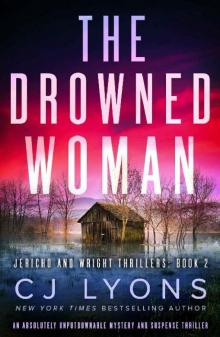 The Drowned Woman: An absolutely unputdownable mystery and suspense thriller (Jericho and Wright Thrillers Book 2)
The Drowned Woman: An absolutely unputdownable mystery and suspense thriller (Jericho and Wright Thrillers Book 2) Trauma
Trauma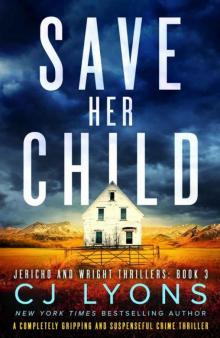 Save Her Child
Save Her Child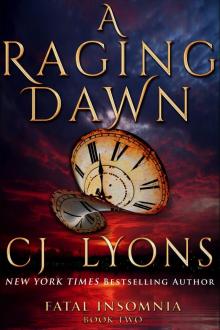 A RAGING DAWN
A RAGING DAWN The Next Widow: A gripping crime thriller with unputdownable suspense (Jericho and Wright Thrillers Book 1)
The Next Widow: A gripping crime thriller with unputdownable suspense (Jericho and Wright Thrillers Book 1)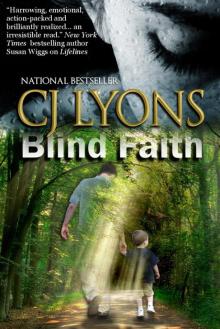 Blind Faith
Blind Faith Isolation
Isolation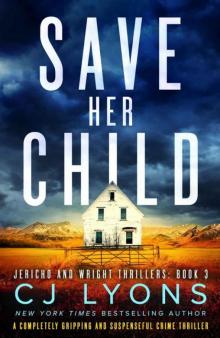 Save Her Child: A completely gripping and suspenseful crime thriller (Jericho and Wright Thrillers Book 3)
Save Her Child: A completely gripping and suspenseful crime thriller (Jericho and Wright Thrillers Book 3) Lucidity
Lucidity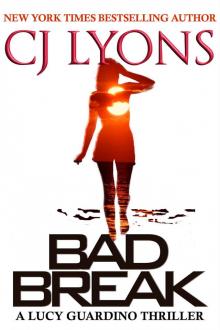 Bad Break
Bad Break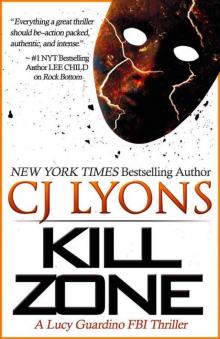 Kill Zone: A Lucy Guardino FBI Thriller
Kill Zone: A Lucy Guardino FBI Thriller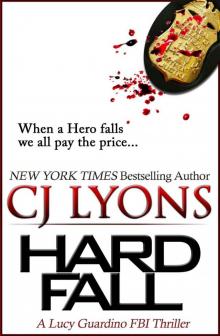 HARD FAL
HARD FAL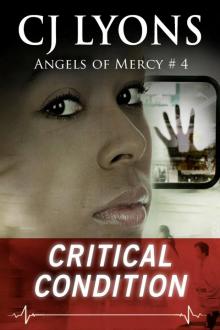 Critical Condition
Critical Condition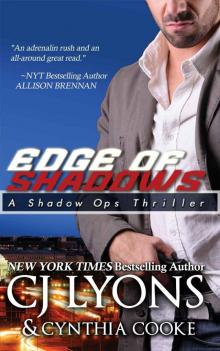 EDGE OF SHADOWS: The Shadow Ops Finale (Shadow Ops, Book # 3)
EDGE OF SHADOWS: The Shadow Ops Finale (Shadow Ops, Book # 3) Black Sheep
Black Sheep In Memory
In Memory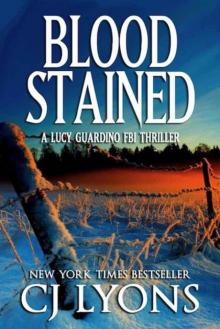 Blood Stained
Blood Stained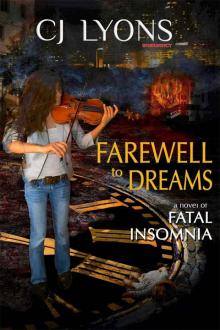 Farewell to Dreams: A Novel of Fatal Insomnia
Farewell to Dreams: A Novel of Fatal Insomnia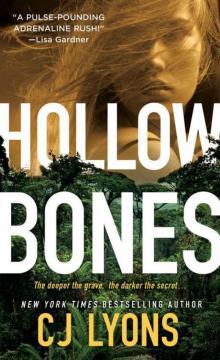 Hollow Bones (Special Agent Caitlyn Tierney)
Hollow Bones (Special Agent Caitlyn Tierney)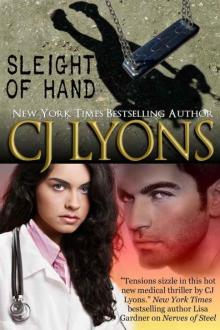 Sleight of Hand
Sleight of Hand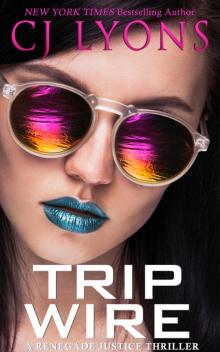 Trip Wire
Trip Wire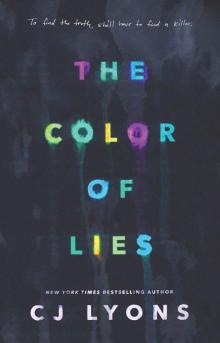 The Color of Lies
The Color of Lies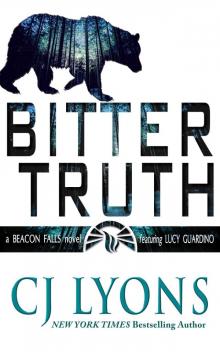 Bitter Truth
Bitter Truth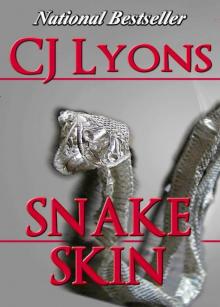 Snake Skin
Snake Skin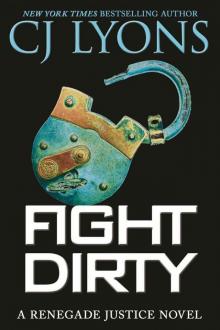 Fight Dirty
Fight Dirty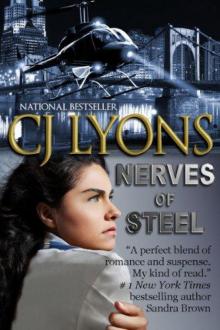 Nerves of Steel
Nerves of Steel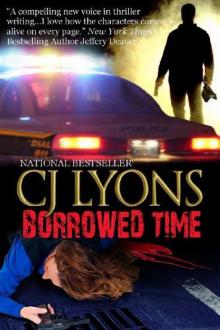 Borrowed Time
Borrowed Time Face to Face
Face to Face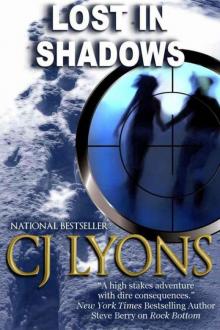 Lost in Shadows
Lost in Shadows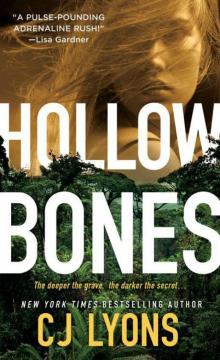 Hollow Bones
Hollow Bones